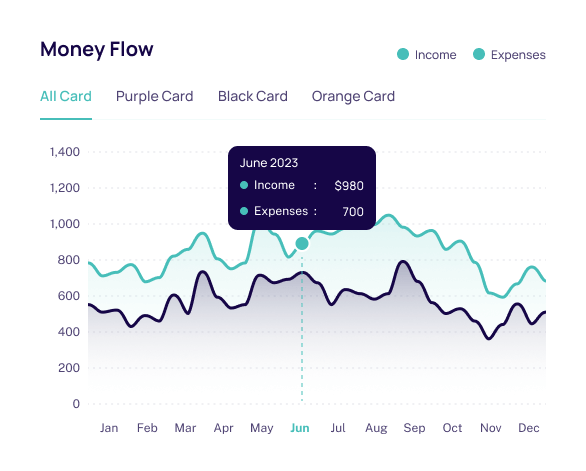Crypto KYC and Onboarding
Crypto KYC and customer verification requirements are ever-changing. Find out how our global platform can help your business stay compliant while expanding global reach.
- Setup in Minutes
- No Credit Card
- Cancel Anytime
Global Identity Verification and KYC
Optimize your crypto compliance
Crucial for preventing fraud, ensuring compliance with regulations, and fostering trust in a secure and transparent trading environment, see how our platform can solve your global KYC crypto compliance challenges.
KYC Fundamentals
What is Crypto KYC?
How does KYC apply to crypto exchanges and what are the fundamentals?
- Flexible Solution
- Constant Updates
KYC for crypto typically involves collecting and validating personal information such as government-issued IDs, proof of address, and other data to verify a customer identity. These steps are usually completed during onboarding, and should be both quick and secure.
Generally the information collected would be:
- Legal Name
- Birthdate
- Address
- National ID Number
There are legal bodies such as FATF, FinCEN, FCA, AUSTRAC, MAS and SFC that oversee Crypto KYC and AML compliance.
Organizations are legally required to show these bodies they have performed due diligence on their customers.
Yes! Cryptocurrency’s inherent anonymity and ability to enable fast digital financial transactions has raised concerns about its potential misuse for illicit activities
Crypto KYC protocols play a vital role in mitigating these risks. By verifying user identities, platforms can track transactions and identify suspicious activity, making it harder for criminals to exploit the system for money laundering, terrorist financing, and other illegal purposes.
As the cryptocurrency market matures, institutional investors are increasingly seeking to participate. However, they require robust compliance frameworks to align with regulatory standards. KYC procedures are essential for meeting these compliance obligations, demonstrating to regulators and institutional investors that platforms are operating responsibly and adhering to anti-money laundering (AML) and counter-terrorism financing (CTF) regulations.
KYC Fundamentals
Is KYC for Crypto Important?
Why is it needed and what are some key considerations?
- Flexible Solution
- Constant Updates
How does ScreenlyyID help with KYC and AML for Crypto?
Borderless Identity Verification
Global Compliance Platform
ScreenlyyID has the worlds largest Identity Document database, with 14000+ documents, spanning 245 countries and 138 languages.
We can check ID document data against 300+ database sources, including in-country Government, Telco, Credit, Utility and Postal databases, all in real-time.
We also verify against global watchlists, sanctions and PEP lists to keep your crypto exchange KYC and AML compliant.


Smart Monitoring
Automated Fraud Detection Engine
Our pre-built rulesets assess every transaction and alert to risky transactions. Fully configurable or use out of the box, so you can focus on whats important.
Easy Integration
No-code and low-code Implementation
Web app? Simply create a QR code and hand your users off to our ready hosted identity verification solution. Mobile App? Implement our hosted SDK to provide out of the box verification.
Need more control or prefer to integrate yourself? Our SDKs, code examples, and REST APIs can be leveraged to integrated seamlessly and keep your crypto exhange compliant through robust kyc and onboarding.
- Flexible Solution
- Constant Updates


Frictionless Modular Workflows
Enhanced Onboarding Workflows
Our modular system means no matter the level of compliance or regulatory oversight in your jurisdiction, checks can be layered and set dynamically to form a complete 360 view of your customer.
- Flexible Solution
- Constant Updates
Streamlined and Simplified
All-in-one AML/KYC Provider
Revolutionizing Crypto Compliance: Your All-in-One AML and KYC Partner Delivering Seamless, Secure, and Sophisticated Identity Verification for Digital Exchanges.
Document Verification
Scan and verify documents in seconds. Check for tampering, detect fakes in real-time.
Biometric Authentication
Compare selfies with ID Documents accurately to ensure genuine customers.
Government eIDV Check
Check names, DOBs, addresses, and document IDs against 300+ trusted data sources
Bank Number Lookup
Cross-check credit card details with related data points, such as issuer location vs address
Address Verification
Validate addresses in over 245 countries and territories with accurate global location data.
Phone Verification
Validate phone numbers in real time and gain valuable customer insights.
Email Verification
Real-time email validate services ensure only genuine email addresses during onboarding.
Device Fingerprinting
Swiftly detect suspicious connections, enhancing customer protection.
KYC Fundamentals
What is AML in Crypto?
How does AML relate to KYC and its place in crytpo exchanges.
- Flexible Solution
- Constant Updates
Anti-Money Laundering (AML) in cryptocurrency is a comprehensive regulatory framework designed to prevent criminals from disguising illegally obtained funds as legitimate income through digital financial channels. In the crypto ecosystem, AML involves a series of procedures and technologies that help exchanges and financial platforms detect, monitor, and report suspicious financial activities.
KYC (Know Your Customer) is fundamentally integrated into AML strategies, serving as the initial verification process that enables deeper financial monitoring. When users sign up for crypto exchanges, they must provide government-issued identification and proof of address, creating a traceable digital identity that allows platforms to categorize risk levels and flag unusual transaction patterns.
By implementing robust AML and KYC protocols, cryptocurrency exchanges not only comply with international financial regulations but also enhance the overall legitimacy and security of digital asset trading.
KYC standards are comprehensive guidelines and procedures designed to verify the identity of customers and assess potential risks in financial transactions.
These standards typically require an organization to:
- Collect a government issued photo identification.
- Run a biometric verification.
- Collect proof of address.
- Run AML, PEP & Watchlist checks to assess the risk posed by the individual
Other data can also be collected to assess the potential risk of a customer such as analyzing device IP address, phone numbers and emails used in the applications to assess their location, legitimacy and likelihood of hiding their identity.
KYC Fundamentals
What are KYC Crypto Standards?
Typically involving several key components, what are the expectation on crypto exhanges?
- Flexible Solution
- Constant Updates
KYC Fundamentals
What challenges and pain points are there?
How does AML relate to KYC and its place in crytpo exchanges.
Balancing User Privacy with Regulatory Compliance – The cryptocurrency community has long valued anonymity and decentralization, making KYC requirements particularly challenging. Users are increasingly concerned about the extensive personal information they must disclose, so services like ScreenlyyID must be seamless and secure.
Ensuring a Smooth Onboarding Experience without Sacrificing Security – Exchanges must develop intuitive, user-friendly verification interfaces that streamline document submission, reduce manual review times, and provide clear guidance throughout the process. Services like those provided by ScreenlyyID
Keeping Pace with Evolving Global Regulations and Regional Requirements – Cryptocurrency regulation is a rapidly changing landscape with significant variations across different jurisdictions. Exchanges must continuously adapt their KYC processes to comply with diverse and sometimes conflicting regulatory requirements from various countries and regions
The future of KYC in cryptocurrency is poised for a transformative evolution, driven by advanced technologies and a growing need for sophisticated identity verification methods.
We can expect increasingly intelligent verification systems powered by AI and machine learning, which will enable faster, more accurate identity checks while reducing friction in the onboarding process.
Simultaneously, global regulators are likely to work towards more standardized compliance frameworks, creating a more unified approach to cryptocurrency identity verification across different jurisdictions.
The ultimate goal is to develop a KYC ecosystem that seamlessly balances robust security, regulatory compliance, individual privacy, and an exceptional user experience.
KYC Fundamentals
What is next for KYC and Cryptocurrency?
Typically involving several key components, what are the expectation on crypto exhanges?
Contact Us
Talk to an expert
Let's connect to discuss the possibilities and find the perfect solution for your business needs.
Complete the form, and one of our experts will reach out to you. You'll discover how our solutions can tackle your specific challenges, optimize your operations, and drive your growth.
- Explore industry-specific use cases
- Identify the best solution for you
- Get enterprise pricing
- Book a demo
